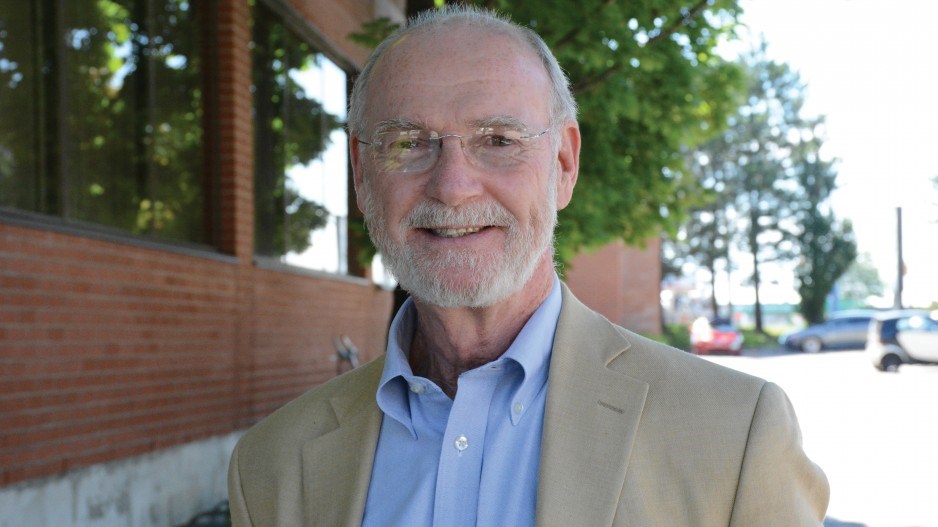The market for adult education in B.C. is about to get more competitive, with Yorkville University set to open a bricks-and-mortar campus in downtown Vancouver.
Founded in 2004, the New Brunswick-based university has been successful in the online education sector and aims to expand on the West Coast by having a physical location in the heart of one of the country’s biggest cities.
The Yorkville campus will occupy the seventh floor of 1090 West Georgia, previously home to Adler University. The university will be roughly 10,000 square feet with four main classrooms, a student common area and a library learning centre.
“Many people ask, ‘Why bother? Why a physical location?’” said Yorkville president Rick Davey.
Davey is often asked whether, in the realm of expanding digital education opportunities, bricks-and-mortar classrooms still have value. It’s a question that is particularly relevant for working adults seeking a bachelor of business administration (BBA) to advance their career. That demographic represents the majority of Yorkville students and is the institution’s target market.
“We are going after those people who are in their late 20s, early 30s, who are looking at their career and saying, ‘I need a degree now to get ahead,’” Davey said.
There are roughly 14 different schools in B.C. that offer BBA programs similar to Yorkville’s. Institutions like Douglas College, Capilano University and Kwantlen Polytechnic University have been offering specialized BBA programs for years.
Victoria-based Royal Roads University recently celebrated 20 years as a public applied research university and has been offering a “blended” course approach for over a decade. The school has roughly 5,300 students.
“We don’t offer a fully online option,” said Steve Grundy, chief academic officer at Royal Roads University. “Our programs are all blended, meaning they have a combination of residential requirements.”
Royal Roads students learn online and in class and are usually required to be on campus for two to three weeks at various times throughout their academic year. Grundy said the balance of in-class and online learning is important for a successful program.
“The market is awash with [BBAs], and they can focus on accounting or, say, in the north, they might focus on oil and gas accounting,” said Grundy. “Online education, if you don’t get it right, has a pretty high attrition rate – people drop out, they feel they are on their own.”
Yet Yorkville says its offerings will differ from other BBA programs because they are tailored specifically to B.C.
“Part of the reason for having a physical campus is to be connected to the B.C. economy and so people can look to us and see who we are,” said Davey.
Yorkville’s BBA program comprises four specializations, including accounting, project supervision, supply chain management and energy management – the latter two having a focus on B.C.’s economy.
“Our courses have advisory panels put together for each of our specializations composed of B.C. employers,” Davey said. “Rarely do you see a situation where a specific panel is associated with five courses or a five-course sequence.”
Yorkville’s campus is expected to create about 40 full-time jobs by the third year of operations and 48 associate faculty positions. As of January 2017, Yorkville had 2,431 students.
“The online, part-time realm, especially within the [B.C.] demographic is a huge area that needs to be addressed,” said Kevin Wainwright, business and economics professor at the British Columbia Institute of Technology. “I believe we will continue to see more competition in that group.
“In B.C., we have an aging demographic; we have more 50-year-olds than we do 30-year-olds. There are a lot of people out there who have worked for quite a while who haven’t completed a lot of credentials who are looking for pathways to get a certification for promotion.”
Wainwright acknowledged that the market for part-time learning in B.C. is growing.
“Two-thirds of our student body are part-time students looking for flexible ways to complete a certification. We are developing more flexible online pathways for mature students.”




